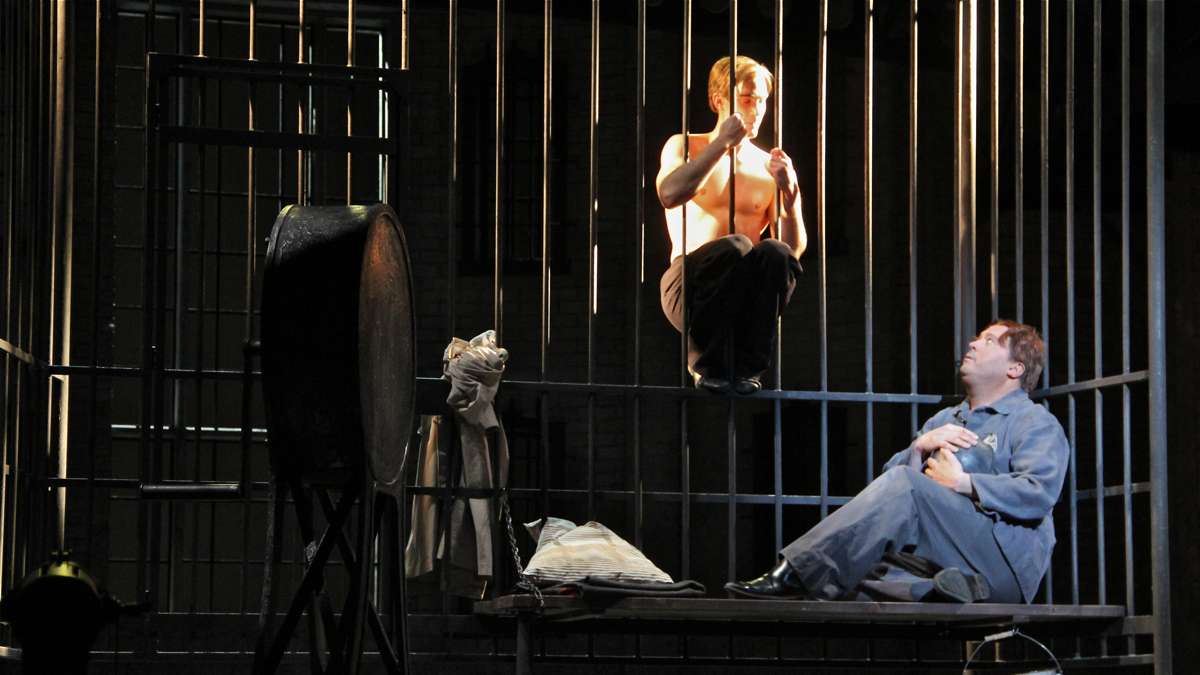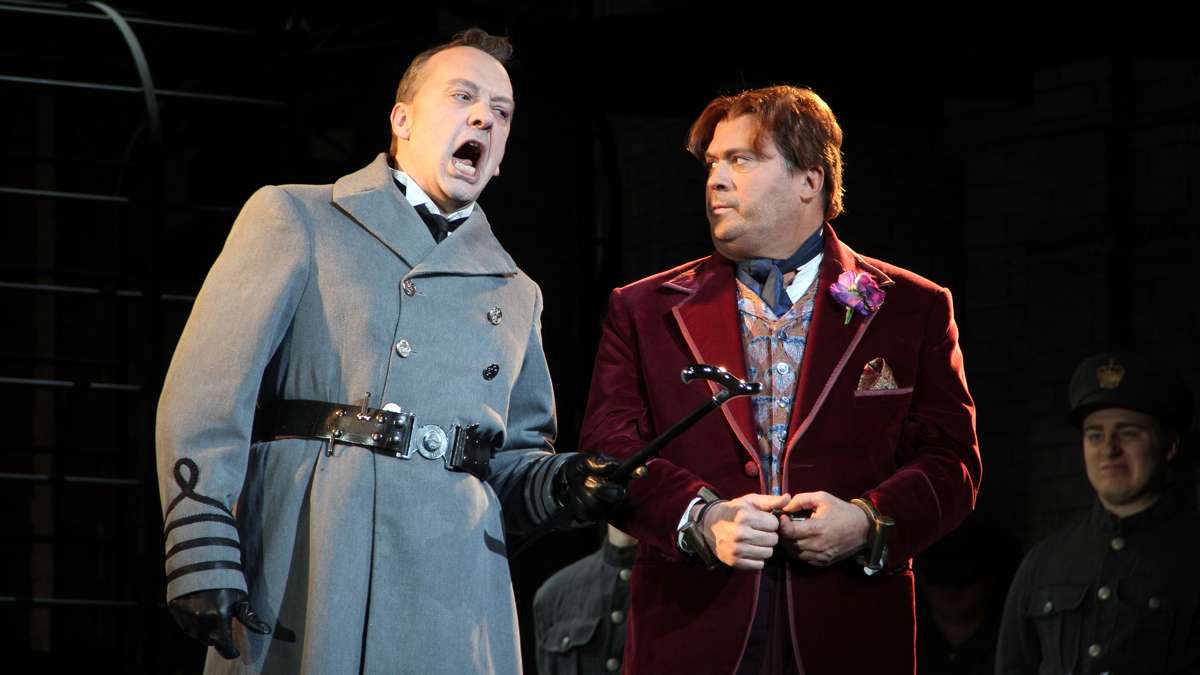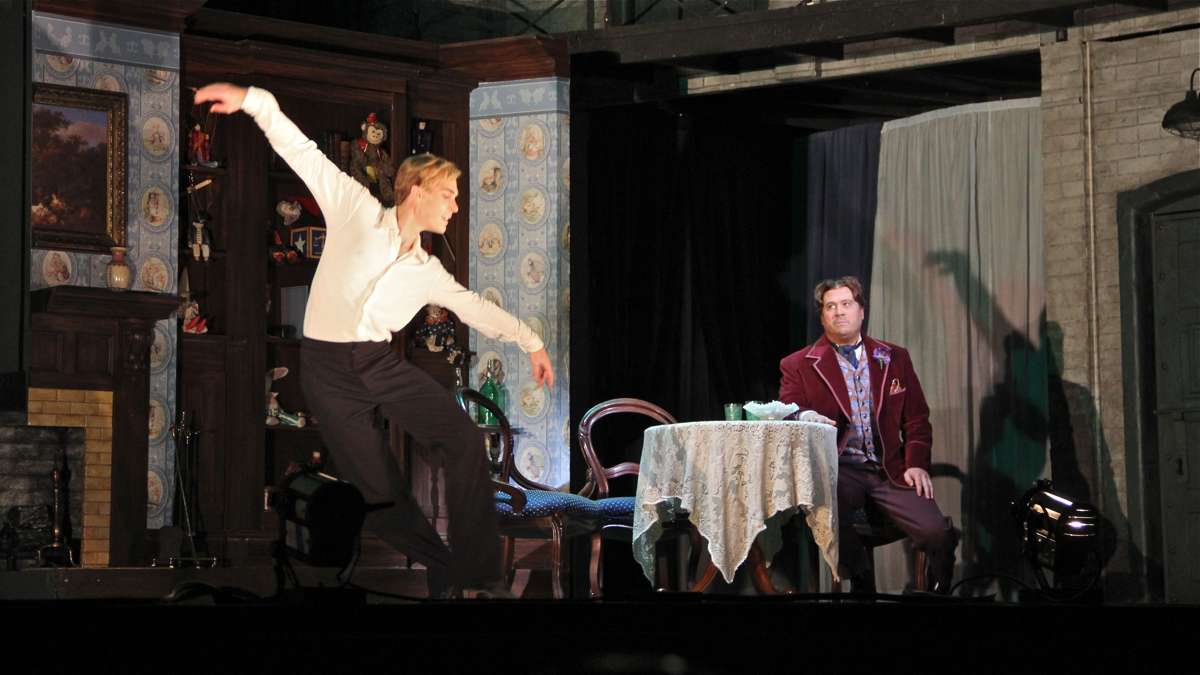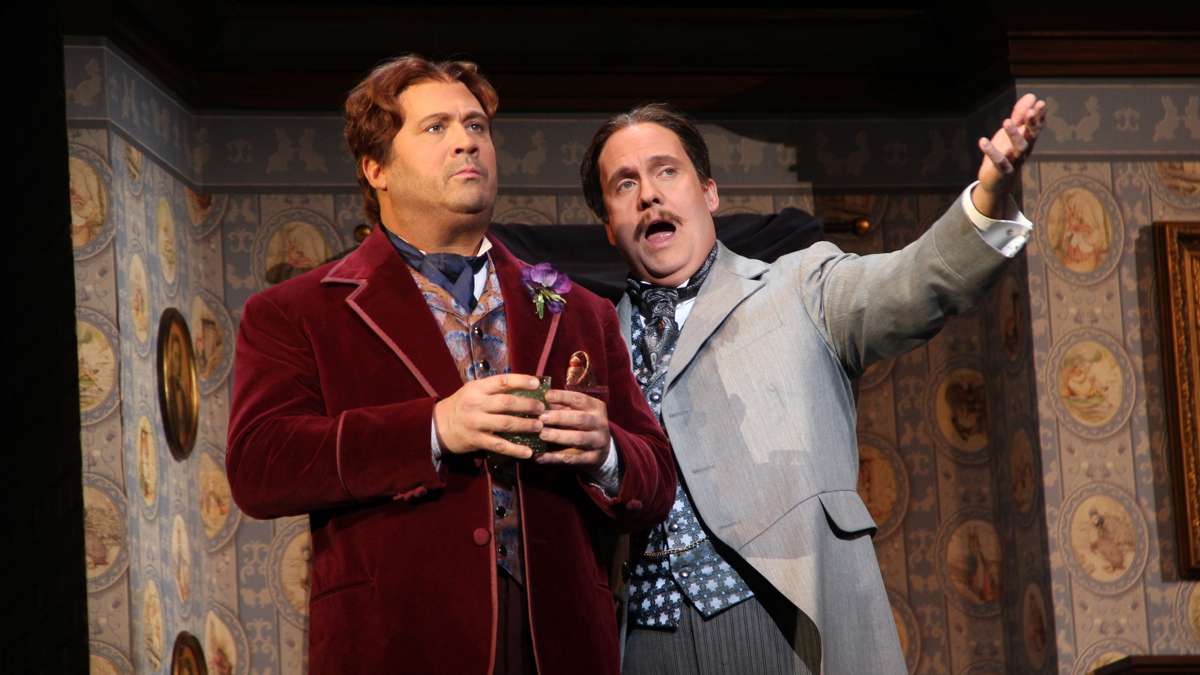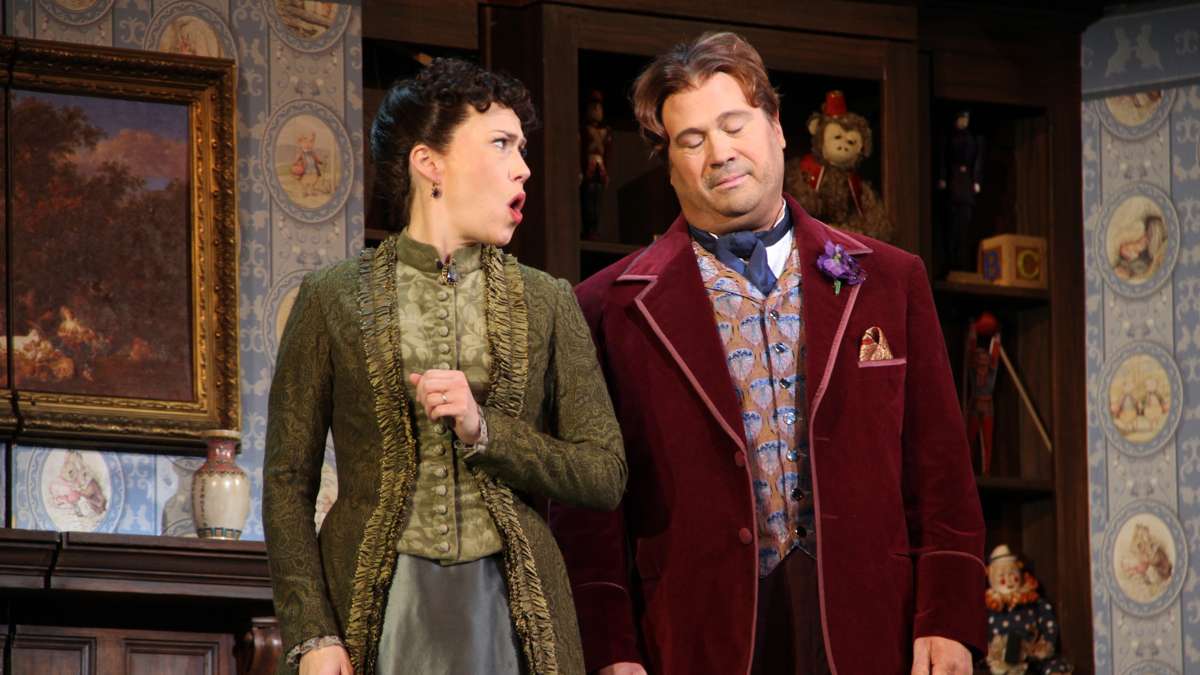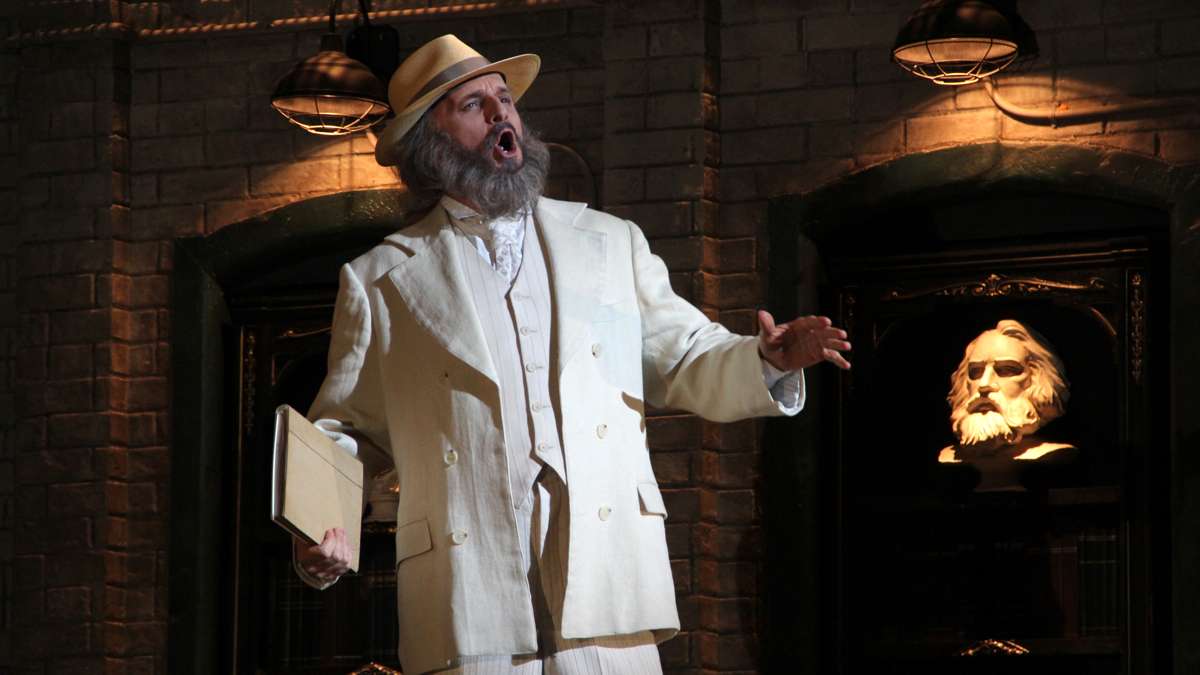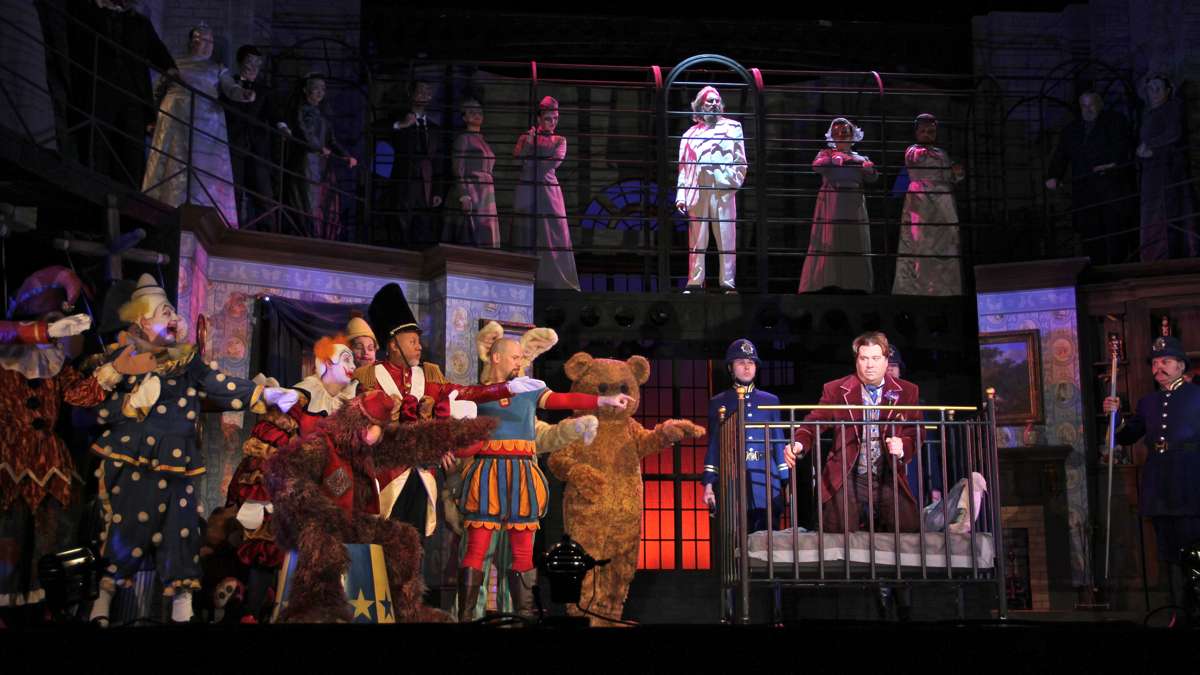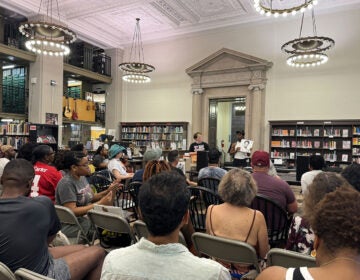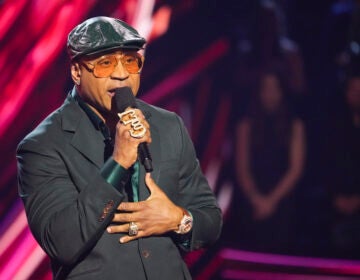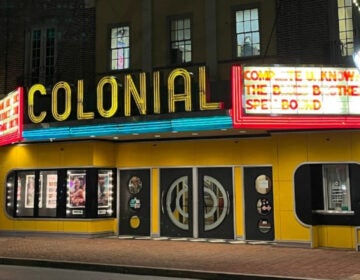Philly’s just wild about Oscar [photos]
ListenThe Philadelphia region is about to be up to its waistcoat in Oscar Wilde. At least four major institutions have launched, or are about to launch, events inspired by the legendary late-Victorian Irish dandy.
Let the Wilde rumpus start: Opera Philadelphia, the Walnut Street Theater, the Delaware Art Museum, and the Rosenbach Library and Museum each feature Oscar Wilde this spring.
The regional interest in Wilde is not spurred by any landmark anniversary; institutions are largely piggybacking on the East Coast premiere of an opera, “Oscar.”
Opera Philadelphia co-commissioned “Oscar” with the Santa Fe Opera, which gave it a world premiere last year to mixed reviews.
“The story is in not ‘The Importance of Being Earnest,'” said countertenor David Daniels, for whom the lead was written. “It’s not about Oscar’s brilliance, it’s about the dark side people aren’t aware of.”
The opera, running this weekend through next at the Academy of Music in Philadelphia, is about the last years of Wilde’s life, when he was put on trial for being gay. He was convicted under British law of gross indecency and sentenced to two years of hard labor. He died three years after release from an infection contracted while in prison.
The opera features Wilde’s lover, Lord Alfred Douglas, aka Bosie, in a nonspeaking role. A dancer portrays him in pure movement, as a recurring spirit in the guise of other characters.
Walt Whitman’s fan
In the opera, Wilde is also accompanied by a spectral narrator, Walt Whitman.
“They met in New Jersey,” said Daniels. “There is an immortal feel to these two men, and the gay theme is part of the connection. They are very different gay men. I believe Oscar may have bathed.”
Wilde and Whitman had met well before the action of the opera. When Wilde was a young upstart poet, barely out of Oxford with nothing by a slim, well-received volume of poetry in his name, he had become a fixture on the London scene as a progenitor of the new Aesthetic literary movement. In 1882, he managed to land a lecture tour of America.
Whitman was an old man, famous for “Leaves of Grass” and living in squalor in Camden.
“He was living basically on charity from English people who loved his work. Americans would not support him, but the English did,” said “Oscar” composer Theodore Morrison. “But England would not save Oscar Wilde.”
Wilde’s second stop in America was Philadelphia, where he made a beeline across the river to meet with Whitman, whom he read as a teenager in London.
Wilde’s letter requesting a meeting with Whitman is now on display, with dozens of other letters, manuscripts and ephemera, in “Everything is Going Brilliantly: Oscar Wilde in Philadelphia” at the Rosenbach Library and Museum in Rittenhouse Square.
“Wilde thought he was coming for tea, but Whitman gave him stronger drink, and they were knocking it back,” said co-curator Margaret Stetz.
Diverse poets in search of celebrity
The meeting of the American poet with a scraggly beard and dirty clothes who once wrote, “My tongue, every atom of my blood, form’d from this soil, this air,” with the London dandy who preferred velvet suits and fur hats, could seem on the surface as a mismatch. But they had much to talk about.
“Wilde was obsessed with beautiful men,” said Stetz. “He sensed in Whitman a kindred spirit as an appreciator of the Greek ideal of the bonding of men, and the erotic potential of men. This was someone he wanted to get to know.”
That meeting has been made into a new play, “Mickle Street,” to premiere at the Walnut Street Theater Feb. 17. The play posits that the two poets had another shared interest: fame. Wilde may have wanted to meet Whitman to get pointers on how to shape himself into a popular persona.
“In the first edition of ‘Leaves of Grass,’ [Whitman] made sure there was an etching of him in the big hat and the floppy shirt, to said this is what a poet looks like in this century,” said “Mickle Street” playwright Michael Whistler. “No one had done that before. He created a brand. Wilde did the same thing – a different brand, but they both investigated this idea of creating a person and glomming work onto it.”
Ever the publicity hound, Wilde made sure that meeting with Whitman was well-documented by his manager and sent around to the press. He famously said afterward that “the kiss of Whitman is still on my lips.” Whether it was an actual kiss of a metaphorical kiss is up to interpretations that still buzz today.
Links to Philadelphia
Wilde’s Philadelphia connection continued after his American lecture tour. He had established a relationship with an editor of the Philadelphia-based magazine Lippincott’s, which regularly published fiction. A few years later, in 1889, that editor, Charles Stoddard, visited London and took Wilde out to lunch. He asked Wilde to write a piece of long fiction to be published in Lippincott’s, for a handsome commission. The resulting work, “The Picture of Dorian Grey,” would become Wilde’s only novel.
The exhibition at the Rosenbach Museum contains a small newspaper clipping that tells a large story about Philadelphia and Wilde. An advertisement from 1895 announced Wilde’s play, “An Ideal Husband,” would run at a theater on Broad Street.
By 1895, Wilde was serving time for being gay – gross indecency – becoming persona non grata in the theater world and beyond. Nobody wanted anything to do with him or his work.
“Once he was convicted, the belief is that his plays disappeared from public view for decades,” said exhibition co-curator Mark Lasner. “But here in October 1895, while Wilde was in prison, his play ‘An Ideal Husband’ was successfully produced in Philadelphia.”
WHYY is your source for fact-based, in-depth journalism and information. As a nonprofit organization, we rely on financial support from readers like you. Please give today.



